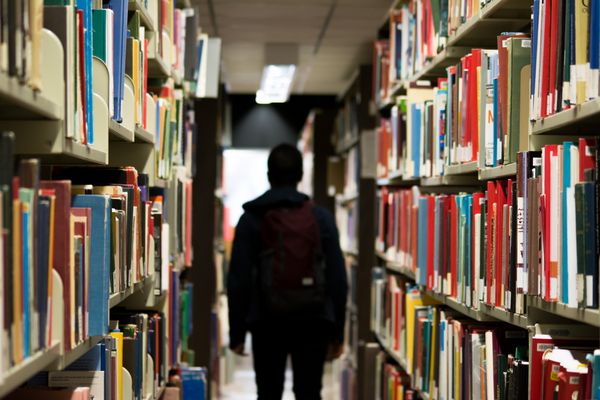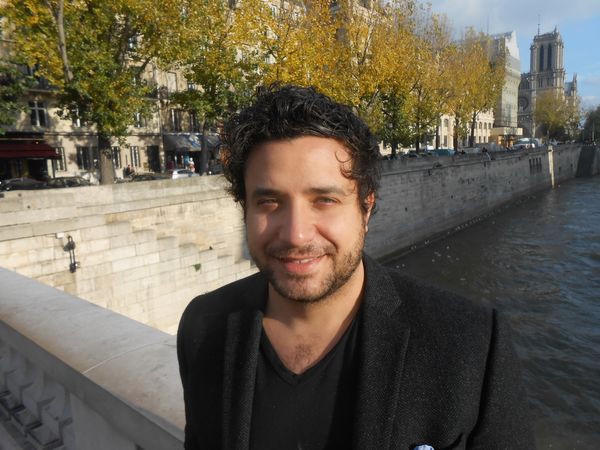7 Traits of a Great Language Learner

Written by guest contributor Luca Lampariello, an Italian native polyglot
Hi. I’m what people sometimes call a “polyglot," a person who speaks many languages. I have been learning languages since I was 10 years old and I can now speak 12 languages. I’ve come into contact with many other language learners and polyglots over the years, and I’ve come to realize that people get great results despite learning in different ways.
All good learners, though, have a few important traits in common.
1. They ask themselves the right questions and start with the right reasons
“A good start is half the battle," they say.
I always tell my students, who are often eager to learn “the method," that the very first thing to do when you start learning a language is start with the WHY. For some, I don’t need to do that. They know exactly why they want to learn a given language, as I did when I started learning Polish.
Why do you want to learn a new language?
It might sound like an obvious question at first, but this is what distinguishes learners who fail from learners who succeed. Those who fail often start with a very vague idea as to why they want to learn a language. They start learning a language with a lot of enthusiasm, only to give up a few days, weeks, or months later.
This will not happen to you if you start with the right reasons.
Let me give you an example.
If you are an American and you’re at a school where many people are learning, say, French, you may want to start doing it as well. Learning a language because other people are doing it is a weak reason. After some time, there’s a high chance you’ll give up because you don’t see the value in doing it.
A better reason would be because you believe it could change your life. If you run into an interesting French person, visit France or read an interesting French book, you might be inspired to learn French. Good reasons to change your life and expand your horizons.
I always recommend that my students write out a list of all the possible reasons they want to learn a language. Do the same. Write them down on two pieces of paper. Attach one to your fridge, and keep the other next to you while you’re working on that language. Find your own valuable reasons and remind yourself every day why they are important.
2. They know how to organize their time and energy
If you really want to do something, you’ll find a way. If you don’t, you’ll find an excuse.
—Jim Rohn
People often complain about how little time they have. They complain about always having to run from one place to another – the curse of modern life. And yet, some people manage to learn languages while living in the modern world. Some even learn tons of languages.
How do they do it?
The truth is, we all make excuses. The people who succeed are those who act.
In other words, they make the time to do what they want to do.
Time and energy influence each other. If you find the time, you also have to make sure that you have the mental energy to carry out the given task. Having the mental energy required entails organizing your time accordingly.
Let’s consider two people, Mark and Tom. Both have kids and work and they both have to wake up early to see their kids to school.
Mark finds the time. He sets up a weekly schedule establishing priorities and creates time slots for the things he wants to do. He wakes up 30 minutes earlier than his kids to study French. He has the energy to do this because he created the time slots for parts of the day when he knows he’ll have the energy required for French.
He does it every day.
Tom has the time. However, for him, time is something you have or you don’t. As far as he’s concerned, he doesn’t have time because he has kids and work to juggle. He tries to study French when he comes home exhausted. He doesn’t learn much and says it is not worth it because he simply doesn’t have the time.
Change your perspective. Make the time and organize that time based on your levels of energy. Here you come find guidelines on how to organize your time efficiently and tackle two or more languages at once. You’ll improve your life. It’s worth it
3. They learn in a holistic way
Live as if you were to die tomorrow. Learn as if you were to live forever.
—Mahatma Gandhi
Holistic: emphasizing the importance of the whole and the interdependence of its parts.
Language is a living entity we can communicate through in 4 different ways: listening, reading, speaking, and writing.
As I explain in this article about how to reach native-like fluency, we take for granted that all native speakers can communicate through these four channels of communication. However, this hasn’t always been the case. In large parts of the southern hemisphere many people are able to speak and understand their native language without being able to read or write. This is a strong indicator that although these areas of communication seem entangled, they can be developed separately.
As learners of foreign languages, we can choose the order in which we develop the four different language skills, and we run the risk of developing one at the detriment of others.
Have you ever been able to understand written texts but not understand the spoken language? Or understand while not being able to speak? Or speak but not understand?
Good language learners learn holistically. They tackle all areas of language learning as soon as possible and at the same time.
4. They love what they do
The only way to do great work is to love what you do.
—Steve Jobs
I have a very specific method to start learning languages. I use my mother tongue to understand and absorb the target language using a bilingual translation method I’ve developed over time.
I’ve noticed that some incredible language learners have a completely different way of learning and yet they still get fantastic results.
The reason why my translation method works so well for me is because I love doing it. That’s also precisely why other people are successful with what they do.
However, before you can do what you love, you first have to discover what you love doing.
If you haven’t found a method you like, keep looking. Finding the best way FOR YOU to learn a language is a trial-and-error process, and I advise you to invest time researching and trying different methods.
5. They possess great focus
Normally, we do not so much look at things as overlook them.
—Alan W. Watts
Language learners who learn efficiently are focused.
Efficient learners allocate a certain amount of time to their study sessions, and they know exactly how long they can stay focused.
Due to many factors, our attention span has dramatically decreased in the last 150 years.
The Internet is one of the main distractions of modern life. Many people see it as a goal. While the Internet is a treasure trove of information, this is only the case if we use it as a resource. Otherwise, it can instead be a huge waste of time and energy, as also suggested in this article on my blog.
Suggestion:
1) Search for interesting material on the internet, download it, then disconnect.
2) Break down the material into digestible chunks.
3) Divide your study time into X minute chunks.
Discover what “X” is through trial-and-error. The maximum amount of minutes spent on a chunk should correspond to when you feel like taking a pause and/or you lose interest. In other words, find the maximum amount of time you can work before your concentration and learning efficiency diminishes.
6. They are open-minded
Your assumptions are your windows on the world. Scrub them off every once in a while, or the light won’t come in.
―Isaac Asimov
Attitude always plays an important role in language learning, and makes a huge difference between those who learn efficiently and those who struggle.
Many people are led to think that language learning is about performing. As a result, they stay within their comfort zone, only use words they feel confident using and view the making of mistakes as tragic. Sometimes, they wait for months or years before speaking.
I always encourage people to start speaking as soon as possible. When you speak, you shouldn’t see mistakes as your enemies, but as your best friends. They help us learn and grow. Don’t see corrections as criticism, but as constructive feedback to help you grow.
Language learning is not a performance. It’s an opportunity to learn new things. Every day. Everywhere.
The first step towards unlimited, boundless learning is accepting our limits.
7. They are curious
We keep moving forward, opening new doors, and doing new things, because we’re curious and curiosity keeps leading us down new paths.
—Walt Disney
The best language learners are curious. They simply can’t stop asking questions.
Be passionate.
Be curious.
Curiosity is key to expanding your knowledge. Asking questions and looking for answers can be done at anytime and anywhere in the technology age we live in today. This can also be done alone and with help. For example, with a native speaker.
Here’s a suggestion: keep a notebook with you at all times. Ask yourself “how do I say X in the foreign language I’m learning?” You can also ask people around you for help. Jot down everything and find the answers when you’re able. Invest in what you’re learning. Be curious. Believe me, the best way to remember words and expressions is through curiosity, and curiosity is fueled by passion.
Curiosity is the wick in the candle of learning.
—William Arthur Ward
undefined
And there you have the 7 traits of a great language learner.
undefined
undefined
About the author:
Luca Lampariello is from Rome, Italy. He has been studying foreign languages for over 20 years. He holds a degree in Electronic Engineering from La Sapienza University of Rome and attended the Higher Institute of Interpretation and Translation in Paris. He is fluent in 12 languages and has coached hundreds of students using an original system of study to develop native-like pronunciation and syntactic capacity. Since 2008, his videos on YouTube and blog, The Polyglot Dream, have attracted thousands of followers and language learners all around the world.

25 de Novembro de 2015



